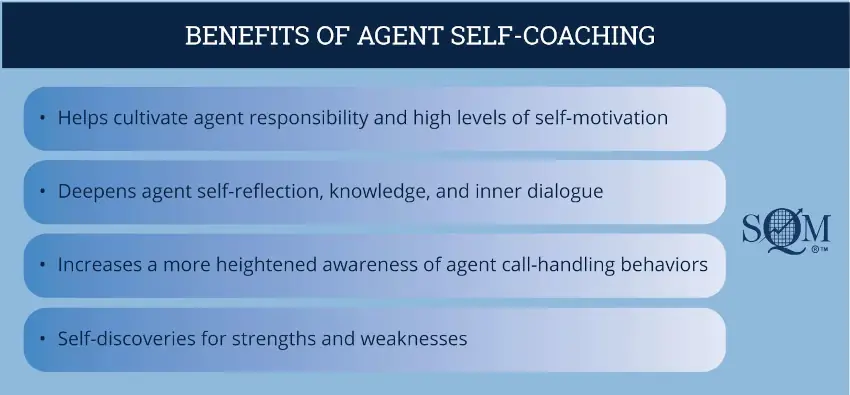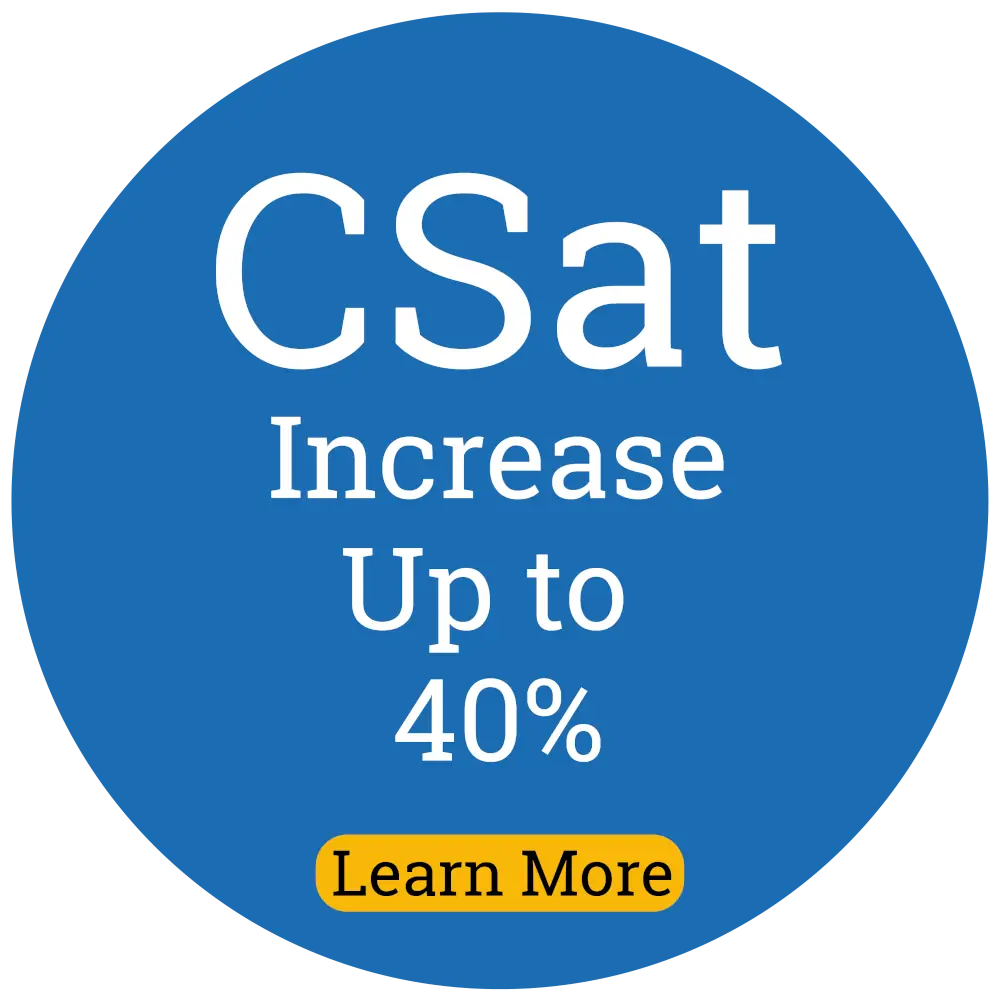What Is Agent Self-Coaching?
Agent self-coaching isn't challenging to get your head around. In most cases, agents have done some self-coaching without even realizing it. Self-coaching for call center agents involves taking ownership of coaching themselves to improve their performance.
Agents often use self-coaching to help them achieve world-class Quality Assurance (QA) and Customer Satisfaction (Csat) scores. Historically call center supervisors have provided agents with coaching to help them improve their QA and Csat scores. Furthermore, agent self-coaching does not replace supervisor coaching; it supplements it.
Given the advancements in Artificial Intelligence (AI) technology and the use of the below proactive steps, there is an excellent opportunity for call center agents to employ self-coaching skills on their journey to QA and Csat world-class performance. Additionally, in a work-from-home environment, agent self-coaching is a necessity.
Why Is Agent Self-Coaching Important?
The traditional supervisor coaching approach to help them improve their Csat score is inadequate. Agent self-coaching creates ownership for improving agent performance. The more agents turn within themselves for the answers, the more self-confident they become.

Most importantly, it utilizes the agent's intrinsic motivation — their internal drive for achieving good QA and Csat scores, personal growth, and job satisfaction.
Here's How An Agent Can Coach Themselves
Ten proactive steps to focus on for effective self-coaching as a call center agent:
- Set Goals: Clearly define your short-term and long-term goals. These goals can be related to improving specific metrics like Csat score, call resolution, or personal development objectives such as enhancing communication skills or product knowledge.
- Post-Call Survey: One key aspect of self-coaching is to use post-call survey feedback to determine agent call resolution and Csat performance, strengths, and weaknesses. A minimum of five surveys per agent per month is required.
- Reflect on Performance: Conduct self-assessments against predefined metrics or benchmarks to gauge your performance. Regularly assess your performance by reviewing call recordings, customer survey feedback, customer relationship management, call handling scripts, standards, and performance metrics. Identify areas where you excel and areas that need improvement. Take note of any patterns or recurring issues that arise.
- Identify Strengths and Weaknesses: Determine and leverage your strengths to excel. Also, identify your weaknesses or areas for improvement and develop actions to address them. This could involve seeking additional training, practicing specific skills, role-playing, or seeking guidance from supervisors or other agents.
- Continuous Learning: Actively seek opportunities to learn and grow. Stay updated on product knowledge, industry trends, and best practices in customer service. Engage in self-study, online courses, blogs, and webinars, or attend workshops to acquire new skills and expand your knowledge base.
- Time Allocation: For agent self-coaching to be successful, allow up to 30 minutes for each call they conducted self-coaching on. Self-coaching should take place within two business days of the post-call survey that took place.
- Artificial Intelligence (AI): Based on customer feedback, use AI GPT to provide insights on what you need to do to improve on the areas a customer told you they were dissatisfied with and the areas they told you they were satisfied with to build on those strengths.
- Take Action: Use a checklist of information they need to review (e.g., call recording, customer survey, KMT, CRM, call handling scripts, SOP procedures) that can also be used to take the necessary actions. Next, note what you feel you did well on the call and, most notably, what actions you will take to improve. Then, share your notes with your supervisor.
- Confidence in Self-Coaching: For each call you handled where you conducted self-coaching, rate how confident you are with your ability to coach yourself to improve how you can handle a similar call in the future. Share your confidence self-coaching rating and your actions to improve with your supervisor.
- Self-Coaching Software: Use QA customer service software to assist you in the key steps for effective self-coaching as a call center agent. The agent self-coaching feature should also be linked to the agent's QA customer service dashboard.
Agent self-coaching is an ongoing process, and consistent effort and dedication are essential for improvement. However, you can become a more effective and successful call center agent by taking ownership of your professional development and actively seeking ways to enhance your skills, knowledge, and abilities.
Request a mySQM™ Customer Service QA Demo Video
Learn about SQM's agent… CSAT prediction model, which is based on standardized metrics, AI, and regression analysis to predict customer satisfaction derived from a QA evaluation. Our CSAT prediction model provides a high statistical correlation, translating to a 95% success rate in predicting agent CSAT in most cases.
4.6




 Stars on G2 for mySQM™ Auto QA Tool Reviews
Stars on G2 for mySQM™ Auto QA Tool Reviews












What Differentiates SQM from its Competitors is our...
mySQM™ Automated QA/CX Analytics Solution that uses proprietary AI technology and intellectual property to determine QA scores and predict customer satisfaction with up to 95% accuracy for every call. SQM's Post-Call Customer Satisfaction Prediction QA Model - Is a Game-Changer!
SQM's QA and CSAT scores can be used to benchmark against 500 enterprise level call centers. Analyze 100% of customer calls with our auto QA/CX solution.
Furthermore, mySQM™ QA/CX provides agents with self-coaching, self-training, and real-time financial recognition features for calls evaluated to help monitor, motivate, and manage agents to deliver great customer satisfaction.


